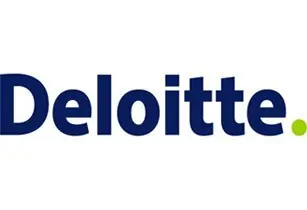Technical Review Middle East (TRME) asked Cynthia Corby, Audit Partner at Deloitte in the Middle East, about her outlook for the construction sector in 2011 and the main findings from Deloitte?s GCC powers of construction 2010 report.
?
TRME: Which GCC construction market has the brightest outlook in 2011?
Cynthia Corby: Saudi Arabia
TRME: What do you feel will be the biggest development in the construction industry this year?
Cynthia: Contractors being more diligent about the employers they chose to work with and tighter cash management on projects
TRME: What do you think are the main lessons learnt from the global recession for the construction industry?
Cynthia: Talking to some of the mega contractors an area they will address differently going forward is not to accept huge volumes of variations without agreeing the value of the variations as the project progresses as this is an area where contractors have really been exposed and a major part of the reason several contractors are out of pocket today.
TRME: What are the main challenges facing the GCC construction industry in 2011?
Cynthia: Delivering quality projects within very tight budgets, especially as the costs of steel is now starting to increase again: collecting cash on the legacy projects; and tendering for contracts in a very competitive market with a number of players entering markets like Qatar and Saudi. With lower margins, having the appropriate bank facilities to service their contracts, and being forced to look at alternative procurement models such as PPP or incorporating operations, maintenance and other methods of integrated delivery (design build operate maintain, build operate transfer etc.).
TRME: Why is it essential for construction companies to be (IPO) ready?
Cynthia: Listing has many additional demands on non-private companies that must be considered such as increased transparency on key functions (e.g. procurement) more accurate profit provisions and focus on governance. It can be a fundamental shift in the way these contractors currently do business.
A strong pipeline of work for the future which will demonstrate to investors that the company will continue to generate revenue in the future; good track record of delivering profitable projects and collecting the cash; good business model that provides the company with flexibility to grow in markets with opportunities in the region
TRME: How important is regional restructuring for the Middle East construction market as a whole?
Cynthia: It essentially ?resets? the market. For example, with tighter returns it requires owners and developers to take time to complete their designs and adhere to required scope, rather than rushing to build before completing design work, and requires contractors to understand all potential risks before execution, completing the shift from a ?contractor?s market? to a capital based market.
TRME: What hurdles remain for companies looking to set up a business in Saudi Arabia?
Cynthia: They need to secure a good JV partner who understands how to operate in Saudi and will have complementary skills and strengths; and has the wherewithal to secure opportunities.









